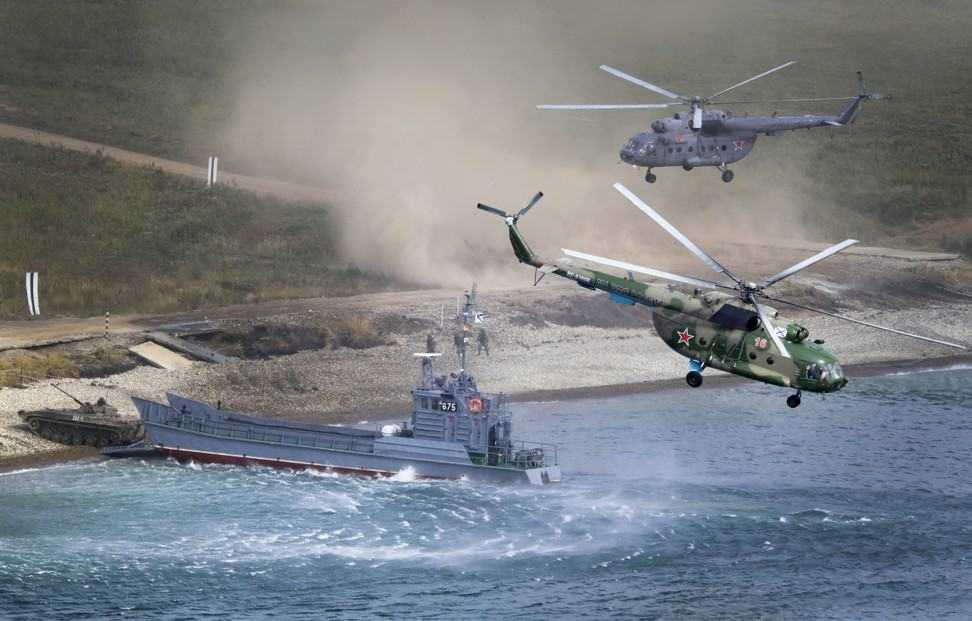Is a Russia-China alliance emerging? Not necessarily.

Warming relations between Moscow and Beijing could end up weakening Russia beyond recovery. The massive Vostok 2018 joint military exercises between both powers is certainly cause for concern – but it could be masking Russia’s hastening decline.
Plans to divert Siberian rivers to supply fresh water to China are forcing locals to suffer for the Putin regime’s corrupt deals with Beijing. Even more dangerous for Russia is the increasing Chinese colonization of Siberia and the Russian Far East.
“’The strengths’ of the two countries are so unequal – China’s population and its economy are an order of magnitude larger than Russia’s – that either Russia will be swallowed up or the alliance between the two will break down,” Paul Goble writes, citing Russian sociologist and Deutsche Welle commentator Igor Eidman.
“The result of such an arrangement between neighbors could only be the gradual colonization of the weak by the strong,” says Eidman, “Which is already taking place in [Russia’s] Far East.”
The United States can play this opportunity to its strategic advantage if it can calm down about all things Russian.
Diverting Russian rivers into China
Beijing’s plans to divert parts of Russian rivers into China could be politically disastrous, threatening the environment “and even the survival of the peoples living along any such shift in the flow of river waters,” Paul Goble observes in another article, citing Sibreal journalist Kseniya Smolyakova. Local populations in Siberia are increasing their resistance to the massive Chinese network of canals from Russia through Kazakhstan and Mongolia to divert water into China.
The Altai river diversion is a mortal threat might resonate well in Moscow, but not among the ethnic Russian villages and growing Central Asian communities of Siberia. According to Goble, “Moscow may be willing to make a deal,” but the locals are not, “and this anger could help power regional protests just as it did 50 years ago.”
“Now, with China taking the issue of price off the table – Beijing can and would fund it if Russia agrees to the project – many in the Putin regime in Moscow are ready to go forward full steam ahead. But both a half century ago and now, the people who would be most directly affected are opposed – and angry at Moscow as well as at China,” Goble writes.
Chinese colonization in Russia
“Chinese firms are now prepared to play one federal subject off against the other, something they can do because the Chinese have money to invest and the Russians desperately need that,” says Goble.
Russia’s Rex news agency reports that soon “the first Chinese enclave may appear in Russia” because huge amounts of Chinese investments, as in the Chuvashia region, will give China political power in Russia’s interior.
In the Buryatia and Trans Baikal regions of east Siberia, many fear an increased Chinese pressure, Goble reports.
“Rosbalt commentator Dmitry Remizov says that some see this Putin move as intended to hand them over to the Chinese, something many in the republic and region are very much against given the overbearing attitude of Chinese businessmen and officials already,” he says.
The bottom line
China’s colonization of Russia will proceed for decades as Russia’s population and economy continue to decline. The bottom line here is, how can the US take the strategic advantage of the inherent contradictions in any Russia-China “alliance”? Do we have the strategic outlook to make the most of it?
- Our intelligence agencies went rogue. Now they feel threatened. - April 1, 2024
- You’ve heard about weaponization of the FBI and CIA; now they’re weaponizing the internet - March 29, 2024
- CIA’s new mission: Wokeness over expertise - March 11, 2024
